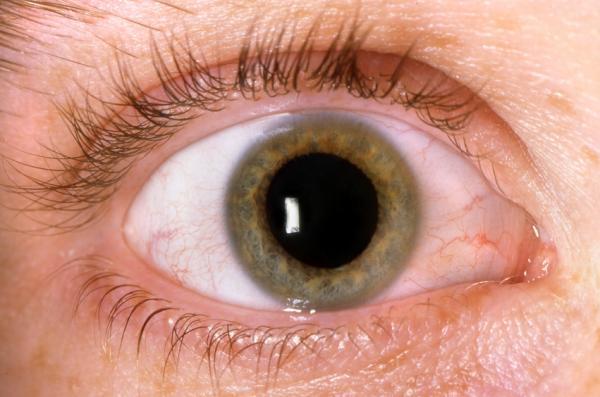
Conjunctivitis, commonly known as pink eye, is an inflammation of the conjunctiva, the thin, transparent membrane lining the eyelids and covering the front of the eyeball. The use of makeup during conjunctivitis raises several concerns, as makeup products can harbor bacteria and viruses that can aggravate the infection and potentially spread it to others.
In the following article by oneHOWTO, we discuss if you can apply eye make up if you have conjunctivitis. We will also provide expert tips on how to treat this common disease.
What is conjunctivitis and its symptoms
Conjunctivitis, often referred to as pink eye, is an inflammation of the conjunctiva, a thin, transparent membrane that lines the eyelids and covers the front of the eyeball. This inflammation can result from a variety of causes, including infections, allergies, and irritants.
Types of Conjunctivitis
- Viral conjunctivitis: caused by viruses, often associated with colds or upper respiratory infections. It is highly contagious, especially during the first few days.
- Bacterial conjunctivitis: caused by bacteria, often entering the eye through contaminated hands or contact with infected individuals. May require antibiotic treatment.
- Allergic conjunctivitis: triggered by an allergic reaction to substances like pollen, dust mites, or pet dander. May require antihistamines or other allergy medications.
Symptoms and signs of conjunctivitis:
- Redness
- Swelling
- Increased tear production
- Tearing
- Itching
- Burning
- Blurred vision
It is important to note that these symptoms can also be caused by other eye conditions, so it is important to see an eye doctor if you are experiencing any of them.
Wondering if your symptoms point to pink eye? Explore our detailed article on the subject to learn about the telltale signs of this common eye infection.

Can you wear makeup when you have pink eye?
Conjunctivitis, with its uncomfortable symptoms and potential for spreading, raises concerns about the use of makeup during an infection. While the application of makeup might seem harmless, it can pose significant risks to the already inflamed and vulnerable eye tissues.
Ophthalmologists and eye care professionals strongly advise against applying makeup during conjunctivitis. This consensus stems from the potential for makeup products to harbor bacteria and viruses, further aggravating the infection and increasing the risk of spreading it to others.
Applying makeup to infected eyes can introduce additional irritants and allergens, exacerbating the inflammation and prolonging the healing process.
Makeup products can act as a reservoir for bacteria and viruses, increasing the likelihood of transferring the infection to the other eye, other individuals, or shared surfaces.
Continued use of makeup can prolong the duration of the infection, delaying healing and increasing the risk of complications.
Recommendations
- Refrain from applying makeup until the infection has completely resolved, and the eyes have returned to their normal state.
- Practice good hygiene habits, including regular handwashing, to prevent the spread of infection.
- Once the infection has cleared, discard any makeup products used during the infection to prevent re-infection.
- Consult an eye doctor if conjunctivitis persists or worsens, as prompt treatment is crucial for preventing complications.

What are the best tips for conjunctivitis?
Conjunctivitis is usually mild and goes away on its own within a week or two. However, there are some things you can do to help relieve the symptoms and prevent the spread of the infection.
Here are some of the best tips for treating conjunctivitis:
- Wash your hands often with soap and water: this is the most important thing you can do to prevent the spread of the infection.
- Avoid touching your eyes: this will help to prevent the spread of the infection to your other eye or to other people.
- Use artificial tears: artificial tears can help to keep your eyes moist and comfortable.
- Apply a cold compress: a cold compress can help to reduce swelling and pain.
- Avoid wearing contact lenses: contact lenses can trap bacteria and viruses, which can make the infection worse.
- Do not share personal items: this includes towels, washcloths, and eye makeup.
- Avoid secondhand smoke: secondhand smoke can irritate your eyes and make you more likely to get conjunctivitis.
- Wear sunglasses when you are outdoors: sunglasses can help to protect your eyes from the sun's ultraviolet (UV) rays, which can irritate your eyes and make you more likely to get conjunctivitis.
- Keep your eyes clean: make sure to remove your eye makeup every night and to wash your eyelids with soap and water.
If you are concerned about conjunctivitis, please see a doctor. They can diagnose the cause of your infection and recommend the best treatment for you.
If you want to read similar articles to Can I Apply Makeup if I Have Conjunctivitis?, we recommend you visit our Beauty & Personal Care category.